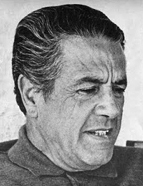

In addition to Boas, Dias was familiar with the work of other major authors such as Kroeber, Herskovits—a staunch advocate of African independence—Margaret Mead, and most notably, Ruth Benedict, whose influence is noteworthy in his monograph on Rio de Onor and his inquiries into the "national character." These individuals were key figures in the school known as "culture and personality," whose formulations had their roots in the German "psychology of peoples."
His relationship with British anthropology was less significant, despite his early acquaintance with the classic works of Tylor and Frazer and the founders of the functionalist school. However, in the 1950s, he expressed significant reservations regarding what he perceived to be the goals of British functionalism. He was far more interested in cultural and psychological dimensions than in the study of social systems, which he associated with th e same anthropological school. In his view, it was insufficient to merely understand how a society organised itself to meet its material and spiritual needs; it was also essential to understand how people thought and felt. He criticised Durkheim’s influence on functionalism, believing that by focusing on social facts external to the individual, the French sociologist had distanced himself from the concerns of analysing how individuals think and feel, as well as the cultural patterns in which their actions are embedded. And although he advocated collaboration between anthropology and sociology, he viewed the latter as being focused on studying structural problems and sociodemographic patterns, while anthropology was more suited to addressing what he called the "subtle problems": religion, magic, emotions (J. M. Sobral, O Outro aqui tão Próximo ..[The Other So Close], 2007, pp. 498-500).
H e gained in-depth knowledge of British anthropology, especially through his study in Mozambique, where several contemporary authors—Evans-Pritchard, Meyer Fortes, Audrey Richards, J. Clyde Mitchell, and Max Gluckman—particularly those involved in African anthropology, are referenced. In fact, figures as important as Meyer Fortes, Max Gluckman—founder of the so-called Manchester School, interested in conflict and inequality— and Max Marwick contributed to the volumes of studies published in his honour (In Memoriam António Jorge Dias, 1974).
